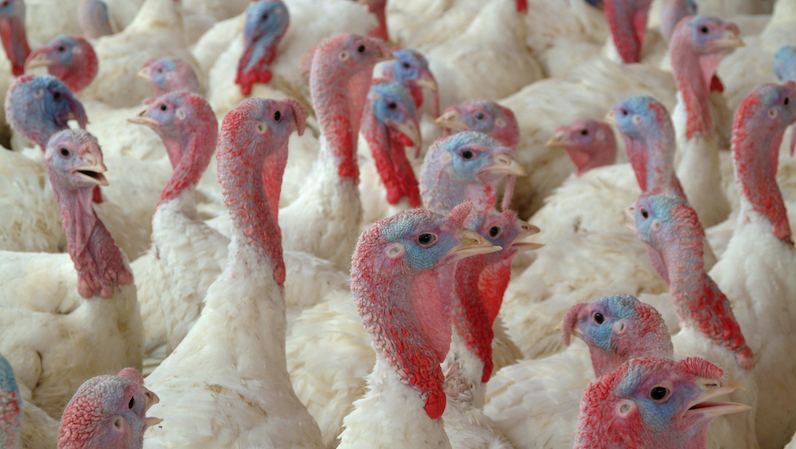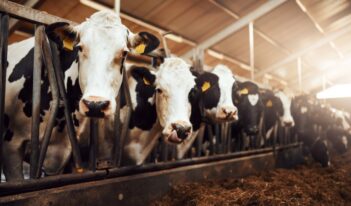
A flock of regulators and industry representatives have a seat at the turkey-regulating table.
When millions of Americans visited the supermarket this week to purchase their Thanksgiving turkey, they likely found a label from the U.S. Department of Agriculture (USDA) certifying the bird as Grade A—defect-free, high-quality, and “meaty.”
But USDA is not the only standard-setter for the turkey industry. Although the federal agency regulates the health and safety of turkeys, a range of non-governmental entities also help shape the rules for turkey production and consumption. These organizations focus on turkey welfare, worker safety, and even widely cherished turkey-related traditions.
The National Turkey Federation (NTF), for example, has represented the turkey industry for over 75 years. Consisting of growers, processors, distributors, suppliers, and trade associations, the NTF issues standards and recommendations for turkeys, turkey farmers, and consumers alike.
The NTF has adopted a range of turkey-based standards: animal care guidelines, which establish benchmarks for companies that breed, hatch, catch, transport, and slaughter turkeys; a code of ethics for the turkey industry, which ensures humane conditions for the animals, food and worker safety, and environmental sustainability; and standards of conduct, which describe how the industry will comply with its code of ethics.
The NTF updates its animal care guidelines every two years in consultation with veterinarians and poultry experts. For example, one guideline instructs that turkey caretakers must conduct “bird comfort checks,” during which the caretakers walk through the turkey barn at least twice a day to check the birds’ living conditions. Another guideline mandates “palatable” feed and drinking water. Still further, turkey caretakers must develop turkeys’ feed programs with “an experienced nutritionist,” and feed mills must follow the U.S. Food and Drug Administration’s Good Manufacturing Practices.
The NTF also works with the Occupational Safety and Health Administration (OSHA) to train turkey industry workers on the safe use of equipment, especially machinery. The rate of injury and illness in the poultry industry is 60 percent higher than the national workplace average, with amputation as a leading danger. Since 2011, moreover, OSHA has cited turkey processors for at least 61 workplace violations, totaling in over $350,000 in fines.
And for consumers, the NTF spearheads the National Thanksgiving Turkey Presentation, a tradition dating back to 1947 in which the NTF brings a turkey to the White House for the President to pardon.
In addition to the NTF, the U.S. Poultry and Egg Association—self-described as “the leading technical resource and voice for the feather industries”—facilitates industry compliance with safety standards and “responsible practices” for animal care and environmental management. An “All Feather” group, the Poultry and Egg Association brings together producers and processors of not only turkeys but also chickens, ducks, and eggs.
Although groups like the NTF and the Poultry and Egg Association operate within the industry, American Humane acts as an independent, third-party auditor to ensure that farm animals across the agricultural industry meet standards for humane conditions and treatment. American Humane certifies close to one billion turkeys, pigs, chickens, goats, and cows.
The turkey standards that American Humane issues span 131 pages. Those pages include an instruction for turkeys to have at least eight continuous hours of natural light per day. Producers must also implement “biosecurity plans” in an effort to protect future dinner table centerpieces from pests and predators. Despite the extensive regulations, American Humane does not require that turkeys have access to the outdoors to be certified.
Of course, in addition to bringing together regulators and members of the poultry industry, the turkey unites another group of people: family and friends around the Thanksgiving dinner table.



